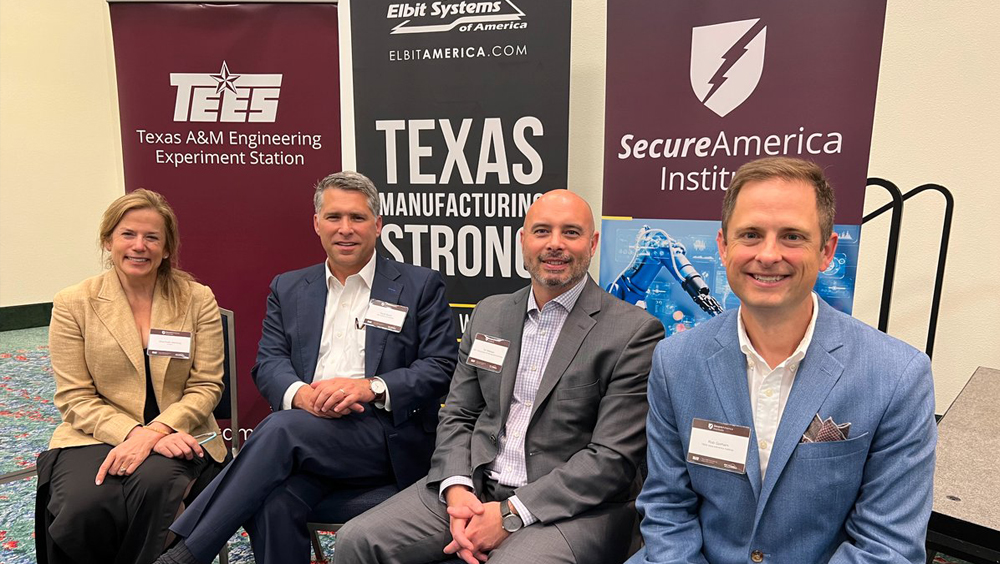
On May 9, the SecureAmerica Institute (SAI), in partnership with Elbit Systems of America, hosted the Texas Manufacturing Renaissance in Fort Worth, Texas. This event convened experts in the defense and aerospace manufacturing sectors to discuss securing robust supply chains and empowering domestic manufacturing for national defense and economic strength.
“The SecureAmerica Institute is a manufacturing initiative within TEES, the Texas A&M Engineering Experiment Station,” said Rob Gorham, SAI executive director. “TEES’ charter to improve lives through applied engineering is the exact reason for hosting the Texas Manufacturing Renaissance, and we could not be more pleased with the outcome.”
U.S. production has long prioritized efficiency more than resiliency, with a focus on long, lean supply chains, often at the risk of security, sustainability and agility. This has resulted in heavy reliance on foreign sourcing, creating a pared-down U.S. manufacturing base unable to scale up and fulfill needs in times of crisis. This reconfiguration of a sustainable U.S. supply chain needs to sit at the nexus of policy, economic development, education and technology.
"America’s national security demands a resilient and secure manufacturing industrial base, and we are investing in expanding its capabilities and capacity to meet those needs," said Scott Baum, vice president of strategy and growth for Elbit Systems of America. "We are proud to be a part of the Texas Manufacturing Renaissance to help create solutions that will develop the future workforce and close manufacturing skills gaps."
SAI also formally introduced its Texas Defense Aerospace Manufacturing Community (TDAMC) initiative at the event — recognizing this moment as a renaissance of American manufacturing. TDAMC seeks to enable a competitive Texas manufacturing ecosystem to empower small-and-medium enterprises (SMEs) to thrive as manufacturers. TDAMC sees the introduction and adoption of smart manufacturing principles and processes to promote digitally connected factories across the supply chain as a prime enabler for SMEs.
“The smart factory represents a leap forward from more traditional automation to a fully connected and flexible manufacturing system that uses a constant stream of data to communicate, analyze and use information to drive effective decision-making back in the physical world,” said Mark Cotteleer, managing director for supply chain and network operations at Deloitte Consulting, LP.
Approximately 98% of U.S. manufacturers are SMEs and comprise a complex supply chain network that is the backbone of all domestic manufacturing — including support for the defense aerospace segment. Declining manufacturing competitiveness, especially within this sector, is a national challenge impacting both America’s security and economic infrastructure.
“The Texas Manufacturing Renaissance provided us with an opportunity to gain valuable insight into industry needs and the solutions we can implement through TDAMC,” said Scott Terry, program director for TDAMC. “We were able to communicate the importance of introducing targeted smart manufacturing skills and technologies into the Texas defense aerospace manufacturing ecosystem.”
The dynamic discussions about the need for an abundant and skilled workforce highlighted the fundamental importance of establishing a renewed manufacturing narrative that extends beyond technology innovation. TDAMC aims to focus on several of these aspects to address workforce shortages that risk the country’s competitive edge within the manufacturing sector and may threaten the future prosperity of the United States.
